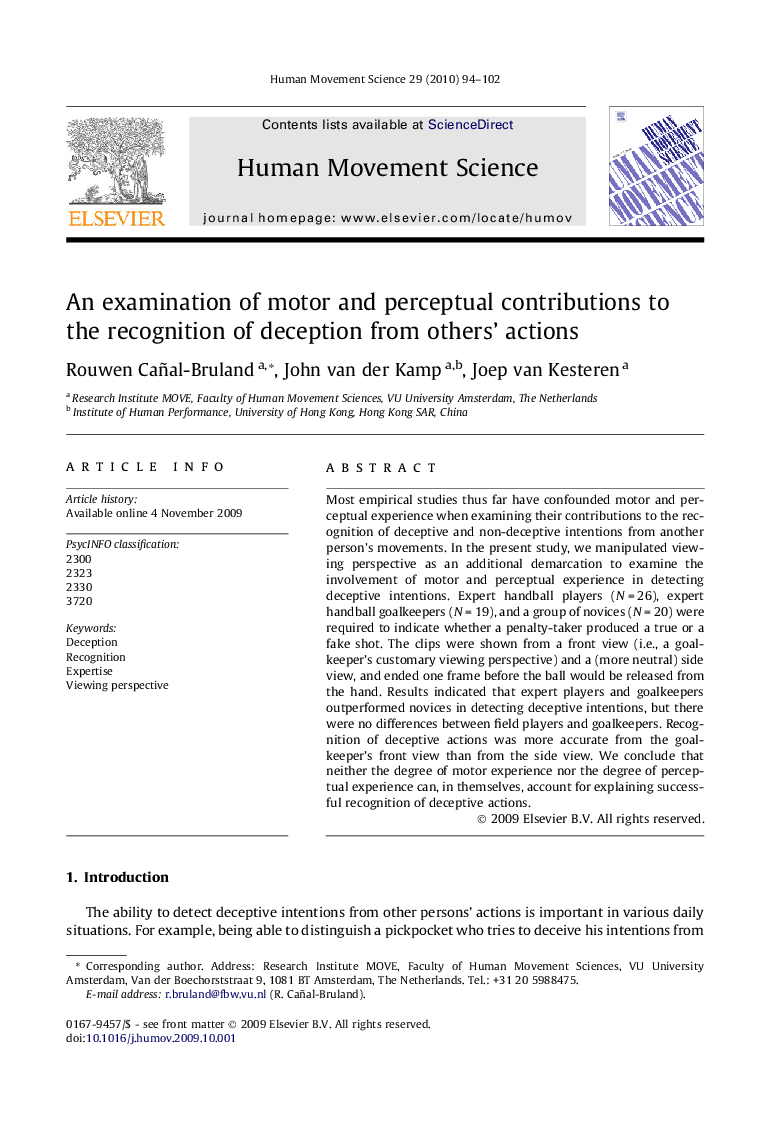| Article ID | Journal | Published Year | Pages | File Type |
|---|---|---|---|---|
| 928743 | Human Movement Science | 2010 | 9 Pages |
Most empirical studies thus far have confounded motor and perceptual experience when examining their contributions to the recognition of deceptive and non-deceptive intentions from another person’s movements. In the present study, we manipulated viewing perspective as an additional demarcation to examine the involvement of motor and perceptual experience in detecting deceptive intentions. Expert handball players (N = 26), expert handball goalkeepers (N = 19), and a group of novices (N = 20) were required to indicate whether a penalty-taker produced a true or a fake shot. The clips were shown from a front view (i.e., a goalkeeper’s customary viewing perspective) and a (more neutral) side view, and ended one frame before the ball would be released from the hand. Results indicated that expert players and goalkeepers outperformed novices in detecting deceptive intentions, but there were no differences between field players and goalkeepers. Recognition of deceptive actions was more accurate from the goalkeeper’s front view than from the side view. We conclude that neither the degree of motor experience nor the degree of perceptual experience can, in themselves, account for explaining successful recognition of deceptive actions.
